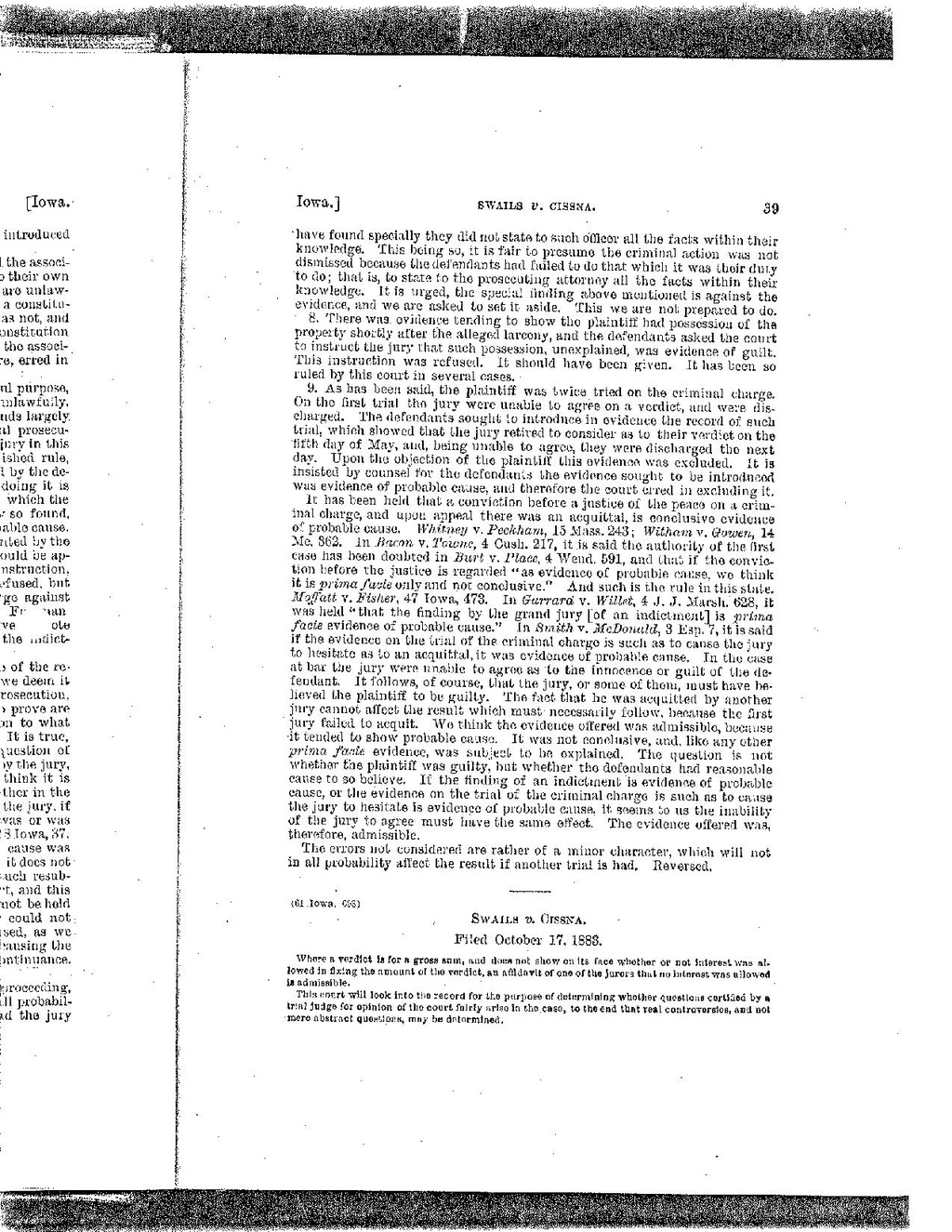have found specially they did not state to such officer all the facts within their knowledge. This being so, it is fair to presume the criminal action was not dismissed because the defendants had failed to do that which it was their duty to do; that is, to state to the prosecuting attorney all the facts within their knowledge. It is urged, the special finding above mentioned is against the evidence, and we are asked to set it aside. This we are not prepared to do.
8. There was evidence tending to show the plaintiff had possession of the property shortly after the alleged larceny, and the defendants asked the court to instruct the jury that such possession. unexplained, was evidence of guilt. This instruction was refused. It should have been given. It has been so ruled by this court in several cases.
9. As has been said, the plaintiff was twice tried on the criminal charge. On the first trial the jury were unable to agree on a verdict, and were discharged. The defendants sought to introduce in evidence the record of such trial, which showed that the jury retired to consider as to their verdict on the fifth day of May and, being unable to agree, they were discharged the next day. Upon the objection of the plaintiff this evidence was excluded. it is insisted by counsel for the defendants the evidence sought to be introduced was evidence of probable cause, and therefore the court erred in excluding it.
It has been held that a conviction before a justice of the peace on a criminal charge, and upon appeal there was an acquittal, is conclusive-evidence of probable cause. Whitney v. Peckham, 15 Mass. 243; Wilhorn v. Gowen, 14 Me. 362. In Bacon v. Towne, 4 Cush. 217, it is said the authority of the first case has been doubted in Burt v. Place, 4 Wend. 591, and that if the conviction before the justice is regarded “as evidence of probable cause, we think it is prima facie only and not conclusive.” And such is the rule in this state. Moffatt v. Fisher, 47 Iowa, 473. In Gurrad v. Willet, 4 J. J. Marsh. 628, it was held “that the finding by the grand jury [of an indictment] is prima facie evidence of probable cause.” In Smith v. McDonald, 3 Esp. 7, it is said if the evidence on the trial of the criminal charge is such as to cause the jury to hesitate as to an acquittal,it was evidence of probable cause. In the case at bar the jury were unable to agree as to the innocence or guilt of the defendant. It follows, of course, that the jury, or some of them, must have believed the plaintiff to be guilty. The fact that he was acquitted by another jury cannot affect the result which must necessarily follow, because the first jury failed to acquit. We think the evidence offered was admissible, because it tended to Show probable cause. It was not conclusive, and. like any other prime facie evidence, was subject to be explained. The question is not whether the plaintiff was guilty, but whether the defendants had reasonable cause to so believe. If the finding of an indictment is evidence of probable cause, or the evidence on the trial of the criminal charge is such as to cause the jury to hesitate is evidence of probable cause, it seems to us the inability of the jury to agree must have the same effect. The evidence offered was, therefore, admissible.
The errors not considered are rather of a minor character, which will not in all probability affect the result if another trial is had. Reversed.
(61 Iowa, 698)
Swails v. Cissna.
Filed October 17. 1883.
Where a verdict is for a gross sum, and does not show on its face whether or not interest was allowed in fixing the amount of the verdict, an affidavit of one of the jurors that no interest was allowed is admissible.
This court will look into the record for the purpose of determining whether questions certified by a trial judge for opinion of the court fairly arise in the case, to the end that real controversies, and not more abstract questions, may be determined.
